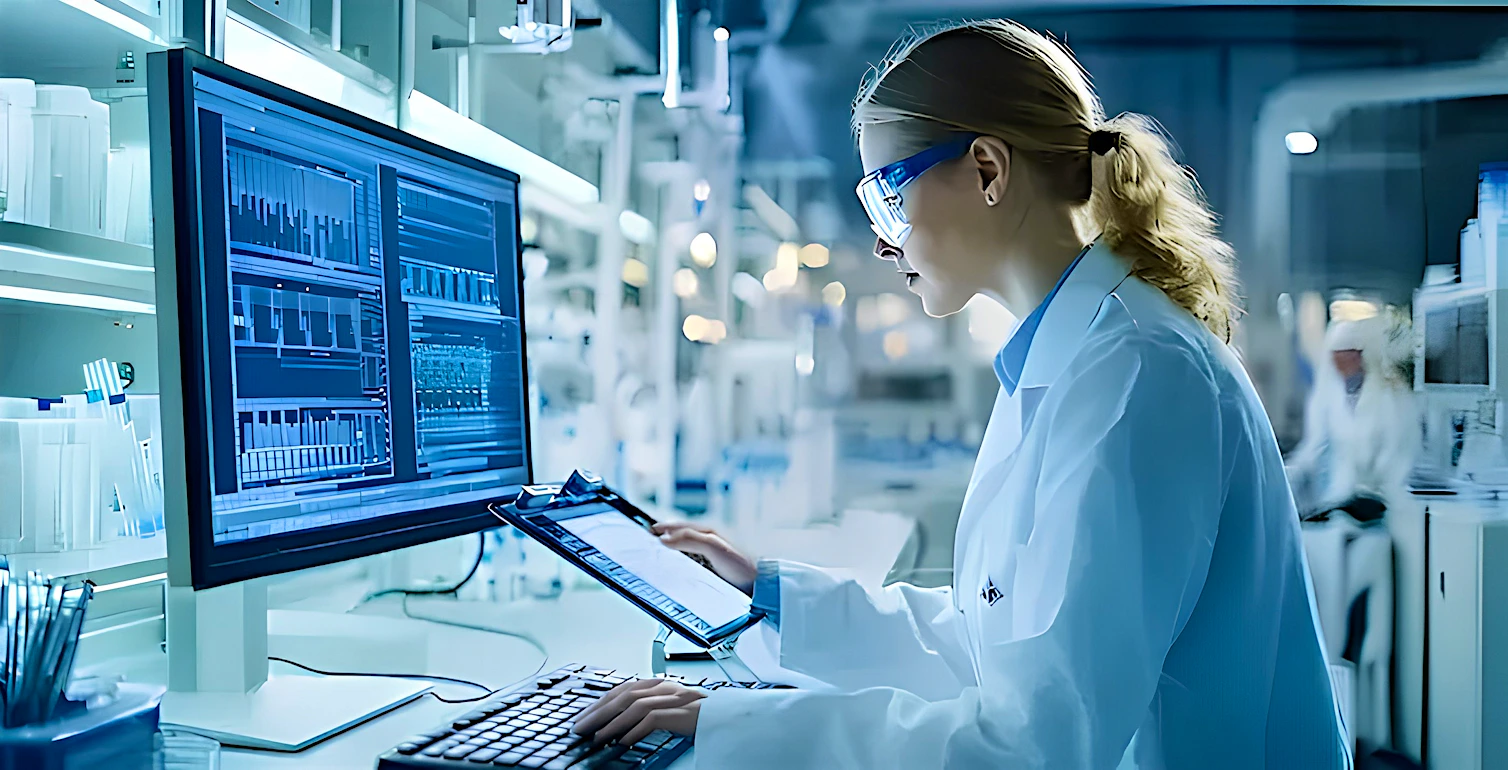Today, in the biopharma industry, scientific breakthroughs, shifting regulations and post-pandemic operating realities are converging with an unprecedented wave of digital and AI innovation.
In this reality, companies must contend with rising development costs, volatile supply chains and heightened expectations around access and affordability, even as data volumes and modalities surge.
Cloud-scale platforms, advanced analytics, automation, and GenAI are redefining what’s possible across discovery, development, manufacturing and commercialization, compressing timelines, reducing risk and enabling new models of patient engagement. Real progress, however, depends on responsible adoption, including strong data foundations, privacy-by-design, explainable models and a change-ready workforce aligned to evolving regulatory guidance.
The greatest challenges facing the biopharma industry
The pharmaceutical industry is navigating one of the most complex and high-stakes landscapes in healthcare.
Bringing a new drug to market takes 10 to 15 years and costs between $2 to $3 billion. This process is further complicated by the trial-and-error nature of drug discovery, where uncertainty is the norm. In fact, fewer than 14% of drug candidates even successfully enter phase 1 trials.
As we move from discovery to clinical development, patient recruitment emerges as another major bottleneck, with 80% of clinical trials being delayed or shut down due to recruitment challenges and 11% of research sites failing to enroll even a single patient.
Then comes regulatory complexity, which 46% of organizations cite as a primary barrier to drug approval, highlighting the time-consuming and rigorous nature of compliance.
Even after trials, the challenges continue into manufacturing and supply chain. Post-pandemic disruptions have severely impacted pharma logistics, with over 70% of suppliers lacking real-time visibility to respond quickly.
And beyond operations, accessibility and affordability remain critical. In many regions, the availability of essential medicines in the public sector falls short of the WHO's 80% target.
Given these circumstances, the pharma industry is navigating a more complex environment than 'normal'. Addressing these challenges requires collaboration and digital innovation to ensure enhanced healthcare outcomes for all.
Tech transforming operations across the value chain
Technologies like AI, GenAI, IoT, Big Data and robotics, amongst others, are playing a pivotal role in overcoming these challenges by driving changes across the value chain.
The global digital transformation in the pharmaceutical market is projected to reach $832.5 billion by 2030, which reflects the scale and urgency of this shift.
In fact, research from Deloitte indicates that AI investments by biopharma companies could boost value by up to 11% over the next five years, with 60% of executives citing GenAI or digital transformation as key trends.
In clinical development, GenAI-powered patient recruitment has accelerated by 30–50%, addressing the critical bottleneck mentioned above, while digital tools like wearables and telemedicine are streamlining trials and improving data quality. These trends are fueling the growth of the digital clinical trials market, which is expected to reach $5.5 billion by 2030.
On the data front, advanced analytics is transforming drug development, enabling real-time decision-making from massive data volumes and reducing the risks associated with trial-and-error approaches.
In manufacturing, automation and robotics are improving operational efficiency, minimizing human error and reducing costs.
Ultimately, technology adoption is going beyond supporting the biopharma industry. Instead, it's fundamentally redefining how companies discover, develop, manufacture and deliver life-saving therapies.
The impact of GenAI on biopharma
GenAI, a subset of AI, is driving a profound transformation in the pharmaceutical industry.
According to Deloitte, top biopharma companies could capitalize on AI investments to drive revenue uplift and cost reduction, primarily from R&D (30-40%), (25-35%) commercial areas (25-35%) and manufacturing and supply chain.
Currently, around 80% of pharmaceutical companies are adopting AI for drug discovery. The technology plays a pivotal role in streamlining patient recruitment, monitoring trial progress and identifying risks early, leading to up to 70% cost savings per trial and 80% timeline reductions.
From drug discovery to clinical trials, regulatory submissions and even personalized marketing, GenAI is at the heart of this revolution, extending its influence across the entire lifecycle.
The AI Index Report 2025 highlights this rapid expansion, confirming that 71% of companies now use GenAI in at least one business function, versus 33% in 2023, including clinical documentation, design simulation and intelligent search in MedTech.
The economic impact is equally compelling. McKinsey estimates that GenAI could unlock $60 billion to $110 billion annually by driving up productivity and accelerating drug development and commercialization.
Furthermore, it can also enhance every aspect of the pharmaceutical operations value chain, including sourcing, manufacturing, quality control and the supply chain, with a potential opportunity of $4 - $7 billion.
GenAI is no longer a futuristic concept; it's a present-day catalyst that’s reshaping how drugs are discovered, developed and delivered.
As its capabilities continue to evolve, we can expect faster, more cost-effective and highly targeted treatments, making end-to-end AI-driven drug development a near-term reality.
GenAI in action
At HCLTech, we work with life sciences and healthcare organizations to move from pilots to scaled AI adoption with a pragmatic, outcome-driven approach.
Our GenAI platform, AI Force™, is used to modernize software engineering and IT operations. AI Foundry brings together data, cognitive infrastructure and intelligent services to turn concepts into MVPs, and our AI & Cloud Native Labs help teams move from experimentation to production. Across these engagements, we apply a Responsible AI framework and full-stack engineering to support secure and compliant deployments.
In life sciences specifically, we’ve collaborated with more than ten pharma clients on domain-specific GenAI use cases across pharma, MedTech and healthcare:
- For an American multinational biopharma, we built a custom GenAI platform for use-case prioritization, automated audit processes for compliance and literature summarization with human benchmark validation
- With a top-four biopharma company, we accelerated regulatory intelligence by aggregating cross-site data, automating alerts with LLMs and enabling guideline comparison and intelligence reporting
- For a global clinical research organization, we delivered an AI-enabled solution for case document management, automating data extraction and classification across structured and unstructured formats
Our focus is consistent: measurable outcomes in revenue growth, productivity and customer experience, delivered responsibly and at enterprise scale.
No longer optional
Across discovery, development, manufacturing and commercialization, one reality is clear: digital technologies and GenAI are no longer optional. They are central to biopharma’s ability to improve outcomes, reduce risk and operate with agility.
The organizations that pair bold vision with responsible, scaled execution will set the pace and drive measurable impact for patients and the health systems that serve them.

 記事を聴く
記事を聴く




